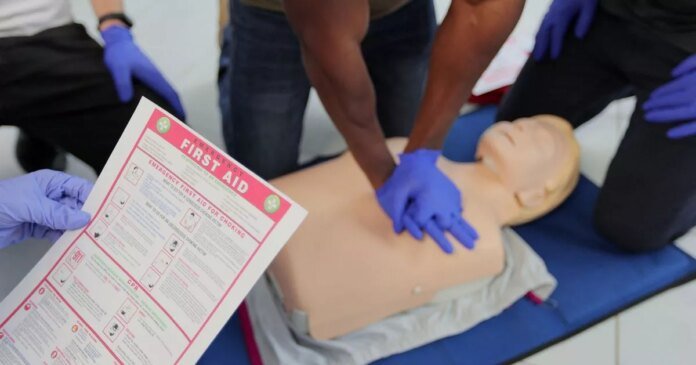Niamh, a lifestyle journalist specializing in content for readers under 35, has highlighted a concerning study revealing that a significant number of individuals hesitate to administer CPR to women due to fears of touching their breasts. The research also found that a considerable portion of men express concerns about facing accusations of inappropriate behavior while performing chest compressions.
According to a survey conducted by St John Ambulance among 1,000 adults in the UK, some participants admitted they would be hesitant to provide life-saving treatment to a woman in distress.
The first aid charity has emphasized that this reluctance poses a serious risk to women experiencing cardiac arrest. They stress that CPR should be administered without hesitation, regardless of the individual’s gender. Previous studies have shown that women are less likely to receive bystander CPR compared to men.
St John Ambulance is urging the public to learn CPR and emphasizes that the procedure should be carried out in the same manner for both genders. The charity advocates for equal treatment in emergency situations, questioning the notion that women should have less chance of survival simply because of their anatomy.
The survey results revealed further troubling insights, with a significant number of respondents expressing discomfort about using a defibrillator, particularly when it involves placing pads on a woman’s bare chest. Understanding that prompt defibrillation significantly increases survival rates during cardiac arrest, the reluctance to use this life-saving device is concerning.
Approximately a quarter of respondents admitted they are less inclined to provide CPR to a woman in a public setting compared to a man. However, the majority agreed that with proper support and training, their confidence in administering CPR would improve.
It is crucial to address these misconceptions and fears surrounding administering CPR to women. Everyone should be prepared to offer life-saving assistance without hesitation, irrespective of gender. Touching a person during CPR should not be viewed as inappropriate, as the primary goal is to save lives.
The societal mindset regarding gender and CPR needs to shift, and individuals must be educated on the importance of prompt and equal treatment during emergency situations.

